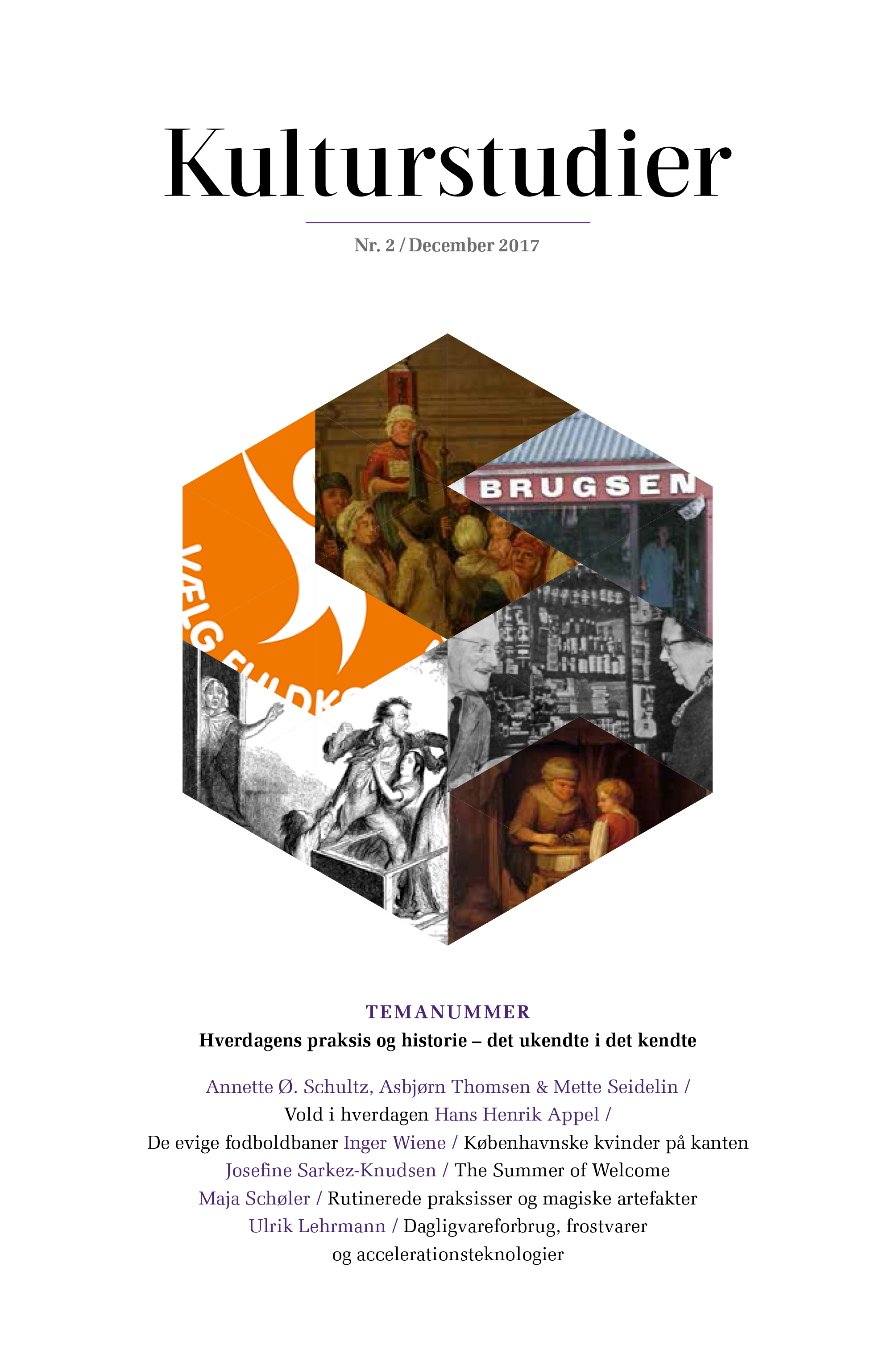The Summer of Welcome
DOI:
https://doi.org/10.7146/ks.v8i2.102930Nøgleord:
Willkommens- und Anerkennungkultur, welcome culture, welcoming practices, housing refugees, conviviality, solidarity, everyday life, migration, refugeesResumé
Before the so-called refugee influx into Germany peaked in 2015, the term Willkommens- und Anerkennungskultur [welcome culture] emerged as a political response to the negative attitude towards immigrants within the German society. During the summer and autumn of 2015, a new set of welcoming practices emerged as large groups of local Berliners engaged in the refugee situation – some by housing refugees in their own home. At this stage, the concept of welcome culture was no longer nourished by the input of political actors alone, it had become a part of a public discourse. The present article is based on ethnographical fieldwork, and is a part of a comprehensive master thesis that is focused on Willkommens- und Anerkennungskultur – more specifically, how different forms of welcome culture in light of the refugee influx into Europe in 2015 emerged in the everyday life, of civic initiators in Berlin, Germany. With inspiration from John Law’s Modes of Ordering I examine the informants’ different practices and rationales for engaging in the refugee crisis. Taking inspiration from the concept of conviviality I analyze how the home and certain notions of solidarity, inclusion and ‘homeliness’ become part of the practices and rationales for housing refugees, and perform different versions of engagement. I conclude that the informants’ welcoming practices and rationales are in and out of sync, with each other and the political concept of welcome culture.Downloads
Publiceret
2017-12-20
Citation/Eksport
Sarkez-Knudsen, J. (2017). The Summer of Welcome. Kulturstudier, 8(2), 83–108. https://doi.org/10.7146/ks.v8i2.102930
Nummer
Sektion
Artikler
Licens
Tidsskriftet forbeholder sig ret til førsteudgivelsen, mens ophavsretten til artiklen tilfalder forfatteren.
Artikler udgivet af Kulturstudier licenseret under en Creative Commons Navngivelse-IkkeKommerciel-IngenBearbejdelse 4.0 International Licens





